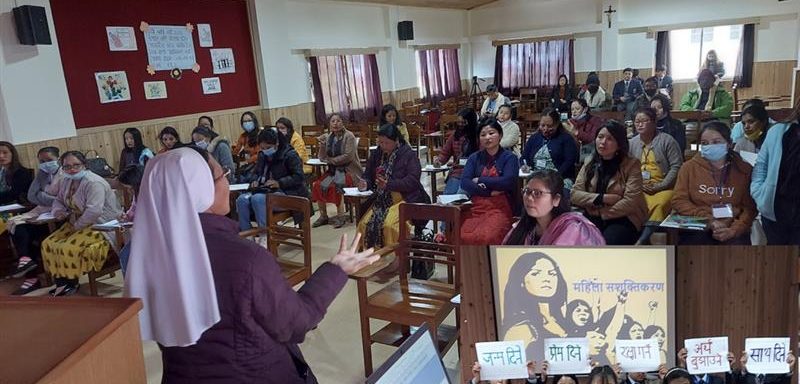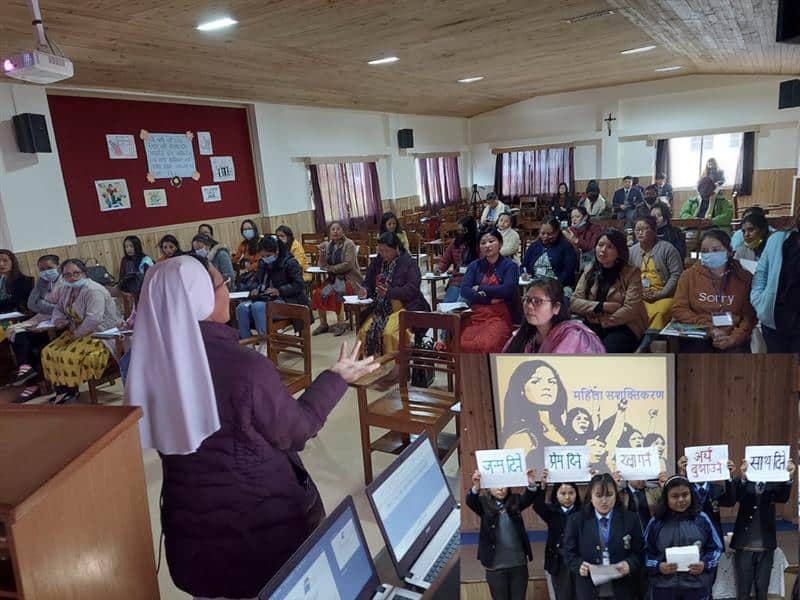(Salesian College Sonada) – In a first-time effort in the hills, an industry-College partnership initiative to empower tea garden women was launched on 21 February 2021.
Salesian College Sonada established in 1938 and the Tea Promoters India who own plantations in Darjeeling, Dooars, Assam and Kerala have launched a pilot project entitled: Women Empowerment in Tea Communities Workshop, to take place on five Sundays from 21 February to 21 March 2021.
In the first phase, ten women workers from three gardens are being trained in health and hygiene; domestic violence and rights; parenting skills; alcohol and substance abuse; and formation of self-help groups.
The newly opened Bachelor of Social Work department under its head Assistant Professor Sumina Chhetri and eight students organized the workshop.
Welcoming participants and plantation management staff, Rector of Salesian College Sonada Father Tomy Augustine said,”This women empowerment workshop is a part of our social outreach program.”
A total of 28 participants along with their management staff from far flung Seeyok, Selimbong, and Singell organic plantations formed the first batch brought together by the Corporate Social Responsibility initiative of The Tea Promoters India (TPI) director J.P. Gurung.
Salesian Sister Anjana Rai, a native of the hills currently nurse at Auxilium Dispensary Mirik took day-long sessions (10.15 a.m. to 3.15 p.m.) on health and hygiene-related to women. She stressed on infant and young child feeding as well as first aid, menstruation and menstrual hygiene; and safe drinking water.
India is one of the second-largest producers of tea after China. Despite the stiff competition, the Darjeeling and Assam Tea are renowned all over the world.
”The tea plantation is the largest sector in the formal private sector industry, yet the wages of these workers are the lowest in this sector”
– J.P. Gurung, T.P.I Director
The tea worker’s inability to learn other skills restrict their job opportunities. Due to such limited skilling, women plantation workers are seen as ”inferior in terms of social status due to their wage work and lack of control over their leisure activities,” added the TPI director.
Recently the daily wages of in the tea plantation in the hills has been raised from Rs.170 to Rs. 207 while the wages in neighbouring Assam is Rs. 217.
Tea Promoters India was founded in 1980, with the intention of promoting sustainable tea cultivation through Organic, Biodynamic and Fair-trade practices.
The group produces high-quality black tea, green tea, silver tips, specialty, and handmade tea from these tea gardens.
Source: Don Bosco India


